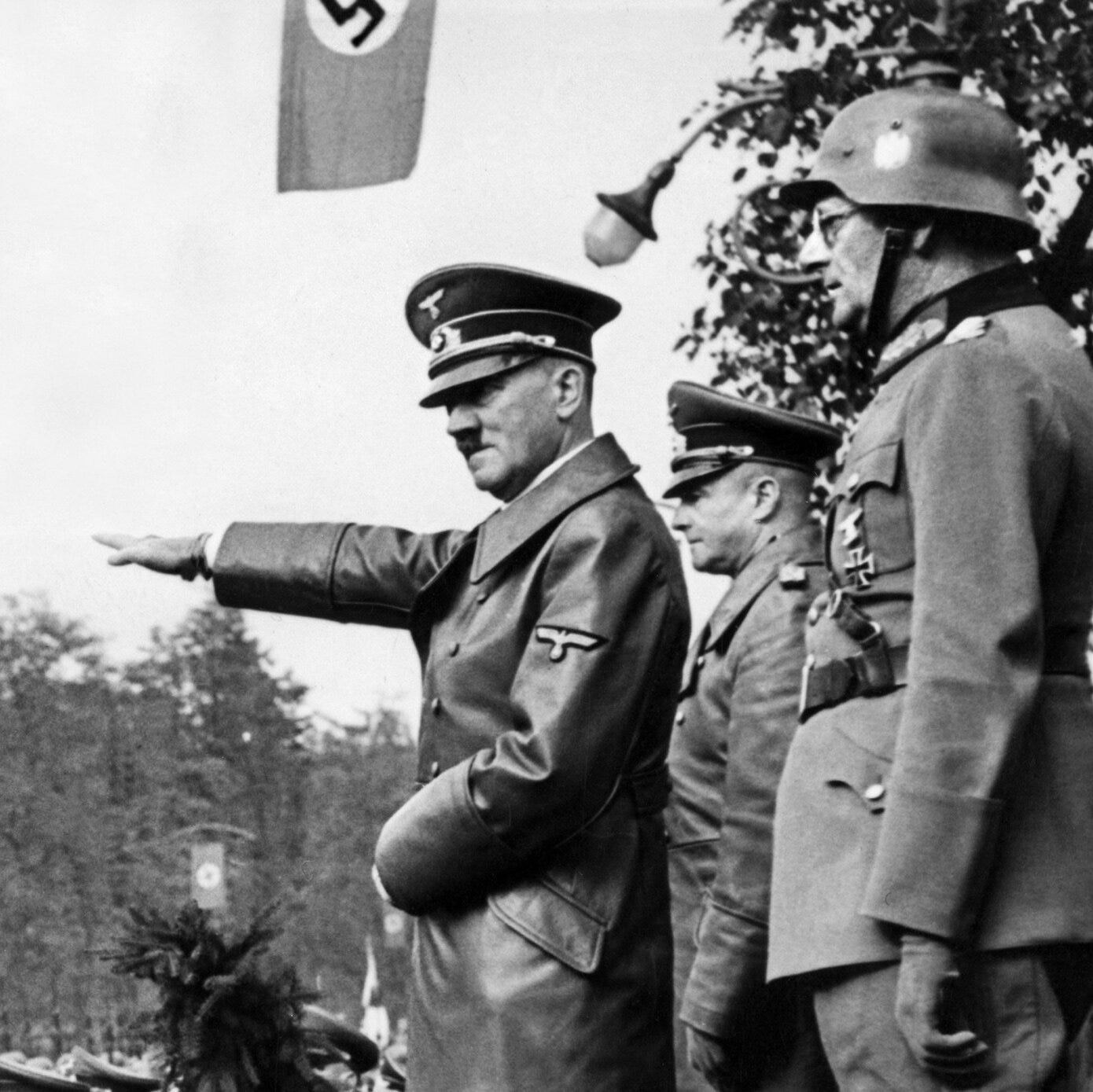Hitler's Rise to Power: 1936-1939
How Nazi Germany's aggressive expansionism brought war in Europe.
Hitler has now usurped power, piece by piece. He exploited loopholes in the Weimar constitution to seize dictatorial powers. He suspended civil liberties. He was able to do all of this, because of the instability of post-war Germany’s politics. No one could elect a stable coalition government, and Hitler was more than happy to fill the vacuum. It only helped that he had militias at his command to terrorize any political opponents.
Reversing Versailles
By the mid-1930s, with Hitler as dictator, Nazi Germany began to assert itself aggressively on the world stage. In 1935, he announced Germany’s intentions to rebuild their army. Under the Treaty of Versailles, Germany’s army could be no more than 100,000 men. But Hitler didn’t care, and he was bold enough to publicly and flagrantly violate the treaty’s terms. This was thanks to years of covert military buildup, in violation of the post-war arrangement.
Under Versailles, Germany was forbidden from occupying the Rhineland. In 1936, Hitler went ahead and seized it. The French, although alarmed, were not willing to risk another war over it.
Austria and Czechoslovakia
In 1938, Germany’s aggression went into full gear. In March, the Nazis orchestrated a coup in Austria, allowing the Germans to annex it. It was a bloodless takeover, and there was already popular support there. Anschluss, or “unification,” had also been forbidden by the Treaty of Versailles, as well as the Treaty of St. Germain.
Late into 1938, the Germans became interested in annexing the German-speaking populations of Czechoslovakia. Those separate Germanic parts of the country were collectively known as the Sudetenland.
Appeasement
France and Britain were still not interested in another war. So, along with Germany’s ally Italy, they signed the Munich Agreement. The Allies, without even consulting Czechoslovakia, simply allowed Hitler to receive the land. The Germans had successfully made another conquest. With each conquest, Hitler received more and more industrial capacity for his war-making efforts. They went ahead and expanded further into Czechoslovakia, which became known as the Protectorate of Bohemia and Moravia.
In a span of four years, from 1935 to 1939, Hitler had repeatedly and unabashedly violated the terms of Versailles. He did so with impunity, because the Western Allies were not willing to confront his thuggish tactics. Appeasement would end up being a huge mistake.
Finally, when Hitler invaded Poland in early September of 1939, the illusion was thoroughly gone. Hitler had no intentions of keeping world peace, and was willing to impose his totalitarian dictatorship on all humankind—massacring, slaughtering, and enslaving anyone who dare oppose his aggression. With this latest act of aggression, the Western Allies declared war on Hitler’s Reich. The Second World War had begun.





